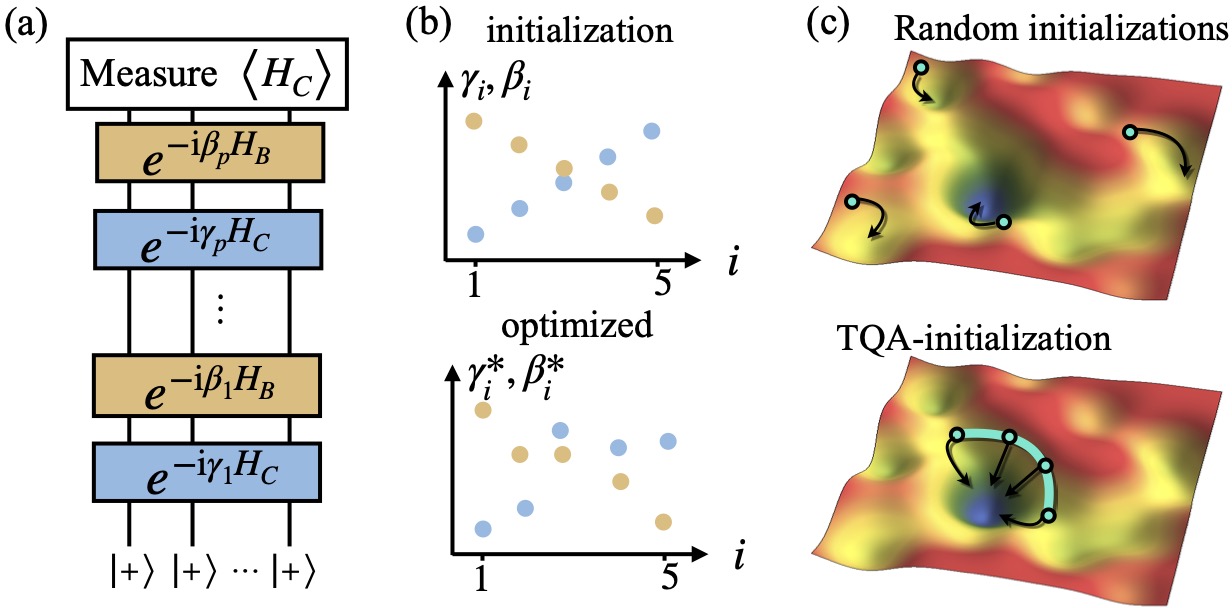Quantum annealing initialization of the quantum approximate optimization algorithm
The quantum approximate optimization algorithm (QAOA) is a prospective near-term quantum algorithm due to its modest circuit depth and promising benchmarks. However, an external parameter optimization required in QAOA could become a performance bottleneck. This motivates studies of the optimization landscape and search for heuristic ways of parameter initialization. In this work we visualize the optimization landscape of the QAOA applied to the MaxCut problem on random graphs, demonstrating that random initialization of the QAOA is prone to converging to local minima with sub-optimal performance. We introduce the initialization of QAOA parameters based on the Trotterized quantum annealing (TQA) protocol, parameterized by the Trotter time step. We find that the TQA initialization allows to circumvent the issue of false minima for a broad range of time steps, yielding the same performance as the best result out of an exponentially scaling number of random initializations. Moreover, we demonstrate that the optimal value of the time step coincides with the point of proliferation of Trotter errors in quantum annealing. Our results suggest practical ways of initializing QAOA protocols on near-term quantum devices and reveals new connections between QAOA and quantum annealing.
PDF Abstract